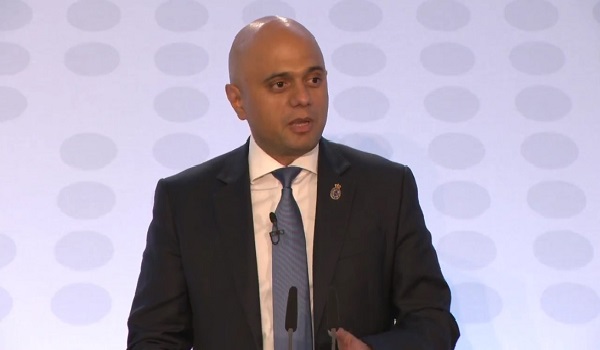‘Very disturbing’ lack of progress on security issues, HASC finds
“Completely irresponsible” political red lines between the UK and EU are standing in the way of a security deal, putting public safety at risk when Brexit occurs, the Home Affairs Select Committee (HASC) has warned.
Published on Tuesday (July 23), the ‘UK-EU security cooperation after Brexit’ report calls on extradition arrangements for after the transition period to be discussed as soon as possible, adding that falling back on the 1957 European Convention on Extradition would be a “catastrophic outcome”.
It follows up on a previous report in March, which said the Government and the EU must remain open to extending the transition period for security arrangements beyond the proposed end-date of December 2020.
The committee also called for the Government to dedicate a “substantial proportion” of the £3 billion Brexit planning fund to policing and security cooperation, to include full costed plans for contingency arrangements.
Before the European Arrest Warrant (EAW) came into force in 2004, the UK extradited fewer than 60 people per year to any country, while in 2016/17, more than 1,700 individuals were arrested in the UK as a result of the EAW.
During the transition period, the UK will continue to participate in the EAW, retain access to data-sharing tools, and remain part of EU agencies such as Europol.
However, European Chief Negotiator for the UK Exiting the EU Michel Barnier told the committee in June that the warrant is “linked to the free movement of people” and due to the UK’s position on these issues, it cannot take part in the EAW following Brexit.
The current draft withdrawal agreement allows the UK to use the EAW, but also enables member states to refuse to extradite their own nationals to the UK, and vice versa.
Mr Barnier also said that the EU would be open to exchanging passenger name record data and setting up “streamlined and simplified bilateral exchanges between authorities”.
However, the UK would not have access to “EU-only or Schengen-only databases”, including the Europol Information System, despite non-member states having indirect access to such databases.
Former Europol director Sir Rob Wainwright believes this would have a “detrimental effect” on the UK’s ability to maintain an effective border security operation.
He gave the example of a suspected sex offender from the EU arriving in Dover. Using Schengen databases, border officials would be able to identify him as a suspected offender, provided that the relevant authorities had entered an alert.
Without access to the database, British officials would have to rely on the offender’s home country being aware of his plans to travel to the UK, and then notifying British authorities proactively.
Concerns were also raised about data protection issues, especially the ‘immigration exemption’, which excludes data processed for the purposes of effective immigration control from certain GDPR provisions.
The committee urged the EU to outline the necessary conditions for the UK to be able to retain access to the Schengen databases, and called for the Government to remove the immigration exemption from the Data Protection Act to avoid “undermining a data adequacy decision”.
HASC chair Yvette Cooper said: “The gap between the UK Government and the EU and the lack of progress on policing cooperation is very disturbing.
“Both sides are putting political red lines ahead of public safety and national security – that is completely irresponsible. We have a shared interest in continued close policing cooperation, which people in Britain and across the EU would want and expect to continue after Brexit. But at the moment, political posturing on both sides is putting that at risk.
“To have no deal on security cooperation would be unthinkable. It would stop the police sharing crucial information on dangerous international criminals, stop border officials getting urgent information on criminals trying to enter the country, undermine investigations into trafficking, terrorism, organised crime and slavery, jeopardise trials and justice for victims, and let criminals go free.
“But even if the transition deal is agreed, the cliff edge will only be delayed for two years if both sides don’t start to compromise in the interests of public safety. The EU is being far too rigid about preventing the UK participating in important criminal databases. And the UK Government is being far too rigid about the role of the European Court of Justice.
“The primary purpose of any Government is to protect its citizens from harm. That is what we expect the UK Government and EU27 countries to do. It would be utterly irresponsible of both sides to fail to secure a deal in this area.”







